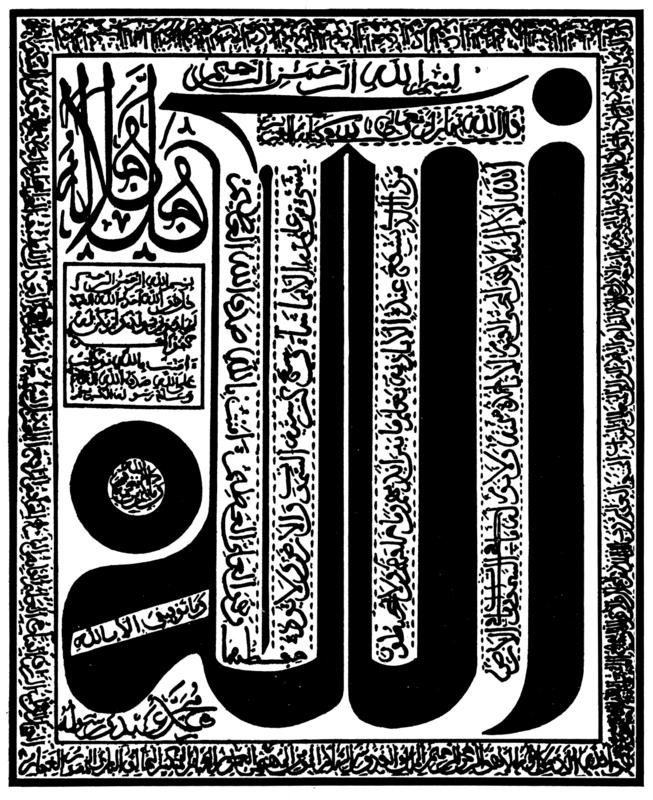The Merciful & Compassionate: A Selection from Ibn Ajiba’s Commentary on al-Fatiha by Shaykh Abdul Aziz Suraqah

Renowned for its unique style, Ibn ‘Ajiba’s commentry of the Qur’an, Al-Bahr al-Madid (The Vast Ocean) combines traditional exegesis with spiritual contemplation, exploring the inner meanings of the sacred text.
In this companion volume to Al-Madina’s inaugural publication, Prophetic Grace, Ibn ‘Ajiba explores the outer and inner meanings of the most important and most commonly read chapter of the Qur’an, Sura al-Fatiha, as well as the shorter chapters of the Qur’an that are read daily by children and adults alike, in homes and in mosques throughout the world.
In these selected commentaries, translated by Abdul Aziz Suraqah, the reader can begin to appreciate the depth and transformative power of what are perhaps the best known chapters of the Qur’an.
[On Surah al-Fatiha]
الرَّحْمـنِ الرَّحِيمِ
مَـالِكِ يَوْمِ الدِّينِ
Therefore, His name the Compassionate implies that things are brought into existence and manifested, and His name the Merciful implies that these things are cared for and granted sustenance. For this reason, it is impermissible to use the name the Compassionate for anyone [besides Allah], and no on has taken it as a name, because no one besides Allah can bring things into existence.
This, however, is not the case with the name the Merciful, for it is permissible to use for someone besides Him, the Exalted, because of the sharing in the act of “granting sustenance,” which appears outwardly and figuratively from some of the creation.
Alternatively the name al-Rahman could mean the Compassionate in this life and the Next, and the name al-Rahim could mean the Merciful in the Hereafter. That is because the mercy of the Hereafter is particular to the believers.
Another possible interpretation is that al-Rahman is the Compassionate with immense graces and al-Rahim is the Merciful with subtle graces.
The immense graces include: Islam, faith (Iman), spiritual excellence (ihsan), gnosis (ma’rifa), guidance, the lifting of the veil, and the opening of the door [to the Divine] and entering it with one’s beloved. The subtle graces include: [good] company, well-being, lawful wealth, and other things we shall discuss in greater detail when we speak about those upon whom Allah has bestowed His graces.
To add to this, the one from whom there is the act of bringing into existence and granting sustenance deserves to be the Master over all the servants.
This is why Allah says,
“the Master of the Day of Judgment”.

He is the King of Kings, the Lord of Lords, in this abode and the next.
The reason why Allah specifies that He is the Master of the Day of Judgment in particular—it being the Day of Recompense—is because on that Day all of creation shall witness directly that dominion is His. Allah Most High shall disclose Himself when He judges His servants, and the believers shall behold Him directly.
This is unlike how it is in this world, for none but the perfected believers understand Allah’s free disposal here, which is why many ignorant people have falsely claimed it and ascribed it to themselves. But on the Day of Judgment the dominion will be for Allah alone in the eyes of the elect and common folk alike.
The Most High says,
“To whom does the dominion belong today? To Allah, the One, the Dominant.” [Quran 40:16]
Relevant Resources
Check out the latest SeekersCircle taught by Shaykh Yahya Rhodus explaining Surah al Fatiha.
The Divine Opening
Shaykh Yahya Rhodus will take us through some of the deep meanings, lessons, and insights of the Opening Chapter of the Qur’an: Surah al-Fatiha. This short Surah has been considered to be a “summary of the guidance of the Qur’an,” if soundly understood — and we will see why believers are called to recite it in every ritual prayer.

